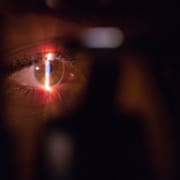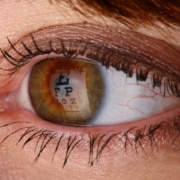Photorefractive Keratectomy: Is It Better Than LASIK®?

How Is Photorefractive Keratectomy Different From LASIK®?
Ophthalmologists used Photorefractive Keratectomy laser surgery before LASIK became so widespread. Photorefractive Keratectomy is still a respected and useful laser eye surgery. Photorefractive Keratectomy, like LASIK, reshapes the cornea to enhance your vision.
During the LASIK procedure, a thin flap in the cornea is created. Then, the surgeon uses laser technology to correct the refractive issues in the cornea by reshaping the cornea. A surgeon will need approximately 30 minutes or less to perform this procedure.
In a Photorefractive Keratectomy procedure, on the other hand, the surgeon removes the outer layer of the injured cornea. A new, uninjured cornea grows in its place, thus restoring your vision. This procedure takes approximately half the time (15 minutes) of a LASIK operation.
Who Can Get Photorefractive Keratectomy?
Almost anyone who is suffering from an impaired cornea can benefit from Photorefractive Keractectomy surgery. However, today, the medical profession primarily relies on this laser eye treatment for two instances: you have large pupils or thin corneas.
What Is Photorefractive Keratectomy’s Success Rate?
Tests have demonstrated that an overwhelming number of Photorefractive Keratectomy patients (90-95%) experienced a vision increase to 20/40 if the patients needed a correction of up to -6.00 diopters. As many as 70% of Photorefractive Keratectomy patients had their vision improve to 20/20 after the laser surgery. Therefore, you are likely to be satisfied with the results post-surgery.
Honolulu, HI, Laser Eye Treatment
To experience of deteriorating vision is frightening. Thus, it is fortunate that modern-day technology has advanced far enough to provide us with laser eye surgery. Laser eye surgery will yield permanent results. Although you have two well-tested and established laser eye treatments available, it is highly recommended that you speak with a board-certified ophthalmologist to gain a clearer understanding of which laser eye treatment may be best for you. To schedule a consultation with Dr. Maehara of Maehara Eye Surgery and Laser, call 808-955-3937 now.




